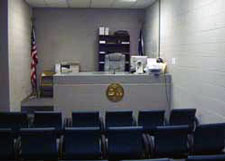|
Bail refers to the release from custody of an accused before trial. The South Carolina Constitution guarantees that all persons accused of a crime are entitled to bail pending trial, except in capital cases or offenses punishable by life imprisonment. The Constitution also provides that excessive bail cannot be charged. No judge can set bail at a figure higher than an amount reasonably calculated to insure the presence of the accused at trial. See Stack v. Boyle, 342 U.S. 1, 72 S.Ct. 1, 96 L.Ed.3 (1961).
If the court determines, in its discretion, that a personal recognizance bond will not reasonably assure the appearance of the accused, or that an unreasonable danger to the community will result, a surety bond may be required. Additionally, conditions and restrictions on this bond can be set by the judge. A surety is indebted to the state in the amount of the bond if the accused fails to appear at any court proceeding or otherwise violates the terms of the bond. A surety bond may be executed, using Bond Form II, in several different ways: |
Accessible Navigation
Section Navigation
Stay Informed
Search Our Website
Main Navigation
Footer Navigation
Breaking News Alerts
The Sheriff's Office is an Equal Opportunity Employer
(and Section 504 of the 1973 Rehabilitation Act
for Employment of Handicapped)
©2025 Spartanburg Sheriff. All rights reserved.
View Accesskeys
Accesskeys
This site contains a number of keyboard shortcuts, called "accesskeys," to assist in navigating. Each Internet browser has a different method of accessing these keys:
- Internet Explorer on a PC use ALT+Accesskey
- Firefox on PC use ALT+SHIFT+Accesskey
- Firefox and Safari on Apple or Linux use CTRL+Accesskey
Please note: Internet Explorer users may also need to hit the “enter” key to activate a link. Apple users with Spaces enabled may need to use the accesskey for Skip to the main navigation (A); then, TAB through the navigation and press "enter" to activate a link.
Page navigation
- 0 : Back to Home
- 1 : Divisions
- 2 : Careers
- 3 : Media Room
- 4 : About Us
- 5 : Resources
- 6 : Contact
- 7 : Unsolved Homicides
Page jumping
- ? : View Accesskeys
- A : Skip to the main navigation
- C : Skip to the content
- S : Skip to the side bar



